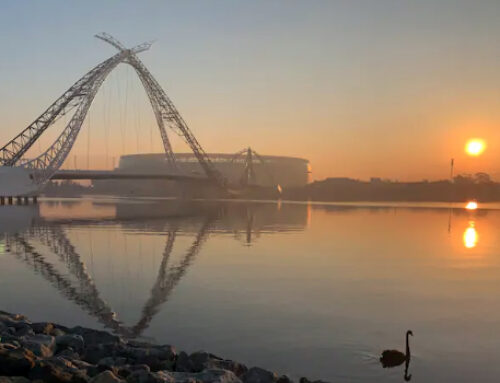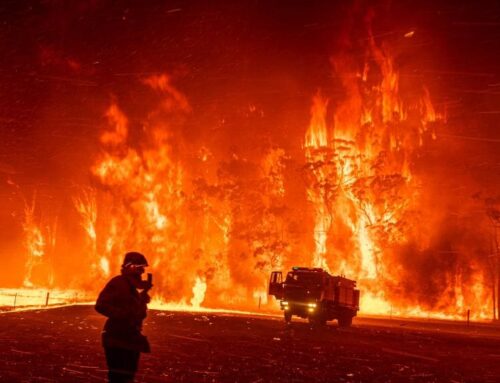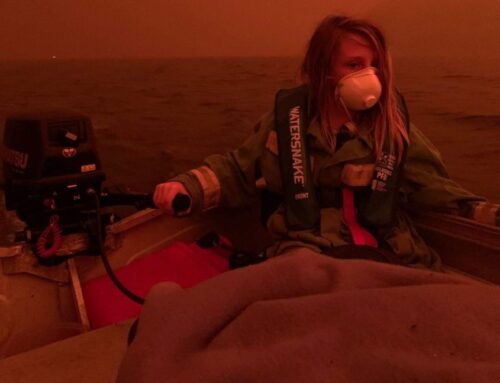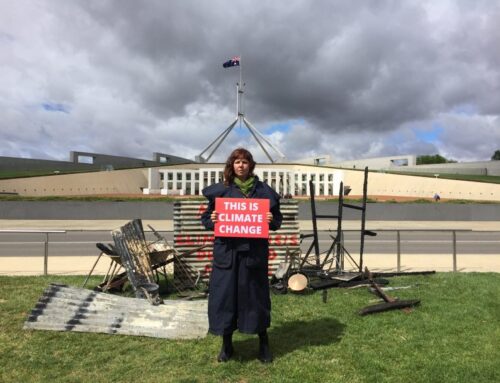Key points:
- Millions of litres of drinking water set to be trucked into more than a dozen WA towns by end of March
- Average winter rainfall in the south-west corner of WA has decreased by 20 per cent since 2000
- Local towns are pleading for more dams and pipelines
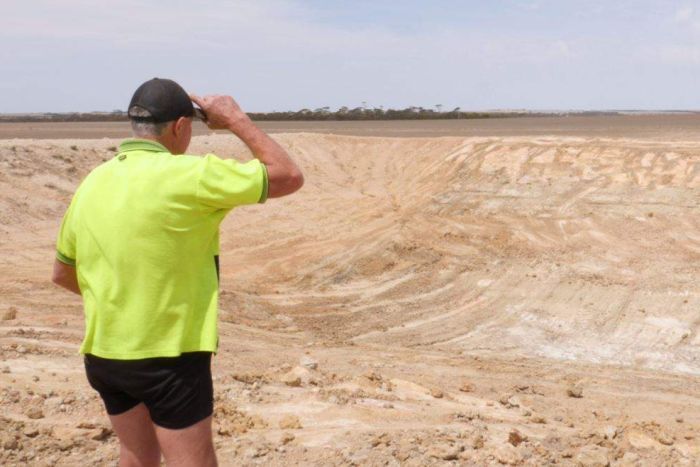
PHOTO: Drinking water set to be trucked into more than a dozen WA towns within weeks. (ABC Rural: Jon Daly)
As rains replenish eastern Australia, Western Australia is in the grips of an unprecedented dry.
The State Government has already been carting 11 million litres of drinking water into 10 towns and just announced it is set to deliver water to four more towns in the Great Southern district.
Water for livestock would also be trucked in to six farming areas, which have officially been declared water deficient.
The Water Minister said it was a unsustainable long-term situation, and urged the Commonwealth to come to the party.
But farmers and local governments in the hardest hit areas said it was not just a drying climate which has caused the problem, and have pleaded for more investment in dams, pipelines and other infrastructure to take advantage of the little water available.
‘Unprecedented dry’
WA’s Water Minister, Dave Kelly, said the water situation was dire.
“To have this many water deficiency declarations at one time is unprecedented,” he said.
“And to have so many town water schemes requiring carting at one time is also unheard of.”
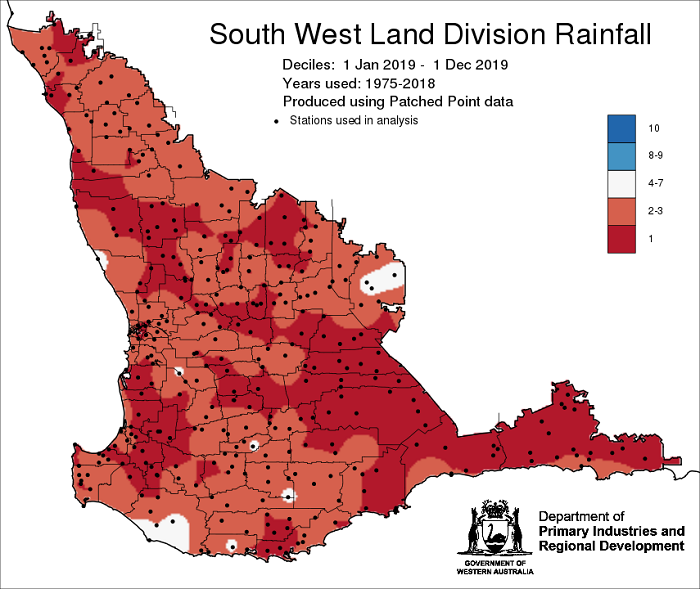
INFOGRAPHIC: Parts of Western Australia have experienced two years of well-below-average rainfall. (Sourced: Department of Primary Industries and Regional Development)
Mr Kelly said parts of southern WA had experienced two consecutive seasons of well-below average rainfall and communities were dealing with the full effects of climate change.
Average winter rainfall in the south-west corner of WA has decreased 20 per cent since 2000.
Noel Bairstow has been farming at Mallee Hill in the Shire of Lake Grace, 350 kilometres south-east of Perth, which was among six farming areas declared water deficient by the State Government.
Mr Bairstow said he had never seen such a prolonged dry spell.
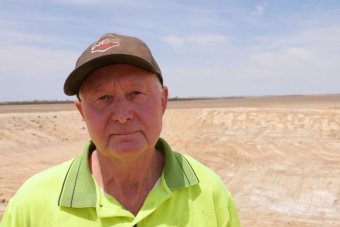
Mallee Hill farmer, Noel Bairstow says the climate is drying and there needs to be a lot more investment in water infrastructure. Photo: ABC
He called for incentives for farm infrastructure such as dams and desalination units for salty groundwater.
“What was happening with our old infrastructure was okay 20 years, but now, in this climate, it’s not going to be adequate at all,” Mr Bairstow said.
“We’ve got to build, and we’ve got to build as quick as we can, otherwise we’re going to hit some real bad times.”
Dams in disrepair
The water shortages have reignited long-running calls for the State Government to do more to upgrade dams and pipelines in dry areas.
Lake Grace shire chief executive, Denise Gobbart, has previously criticised the WA Water Corporation for allowing state-owned dams to fall into disrepair.
But Mr Kelly said such criticism did not hold water, given Water Corporation dams were decommissioned when towns switched to scheme water.
“It would have been a nonsense five years ago to maintain that water infrastructure when it was no longer required,” he said.
“What we’re now finding is that we have the potential to bring some of those old dams back online for non-potable purposes.
“We’ve spent over $1 million over the last 18 months bringing back online 18 different community water sources.”
Water trucked in to ‘rainiest’ towns
But the unprecedented dry has also raised questions about how water has been managed in WA.
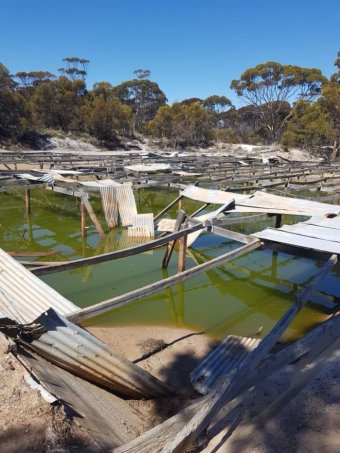
In the water-deficient Shire of Lake Grace, some farmers say state-owned dams have been left in disrepair. Supplied: Shire of Lake Grace
The towns of Northcliffe and Walpole, in the state’s lower south-west, have been having drinking water trucked in to maintain supply, despite being among the wettest towns in the state.
Former WA Liberal leader, Paul Omodei, is now the shire president of Manjimup, which encompassed both towns.
He found it hard to believe there was no other way to supply water in “the rainiest towns in WA”.
“It really is plain as the nose on your face … there’s no reason why the State Government can’t build dams both in Walpole, or fix up the ones they’ve got already,” Mr Omodei said.
Water Corporation regional manager Adrian Stewart said the water provider was investigating longer term solutions for Walpole’s water supply.
“Water sources in the area that meet stringent health expectations are limited,” he said.
Mr Stewart added it was difficult to develop dams in sensitive wilderness areas, and water was trucked into Walpole only at times of high demand.
Water was trucked in permanently to Northcliffe, which is in the middle of forests, 350km south of Perth.
Commonwealth help urged
Mr Kelly estimated the cost of water carting across the state would hit $11 million by June, making the situation unsustainable.
“What we ultimately need is leadership at a national level to deal with the issues of climate change,” he said.
“There are very serious issues relating to water in Western Australia, and if we’re going to need to put in additional infrastructure to deal with it, we’d be hoping that the Commonwealth would come to the party.”
He said he had begun discussions with his federal counterparts about securing some national funding for WA water projects.
Last week, Prime Minister Scott Morrison and Drought Minister David Littleproud announced 35 WA councils would be added to the list of those able to apply for the Drought Communities Program.
Jon Daly , Tyne Logan and Georgia Loney
https://www.abc.net.au/news/2020-02-06/wa-water-minister-warns-of-unprecedented-shortages/11934262?fbclid=IwAR0ik74nlFvauDnR5xC1RM4f5WdIMr-BOAw8NTTcjSAh2-HgygnlKY56kA8&utm_source=sfmc&utm_medium=email&utm_content=&utm_campaign=%5bregloc_sfmc_6_02_20_great-southern%5d%3a125&user_id=6a1529ead1ef9e86de2ad22c100afb738b0766ca97eec37af84e7e474d87bf55&WT.tsrc=email&WT.mc_id=Email%7c%5bregloc_sfmc_6_02_20_great-southern%5d%7c125water_shortage

